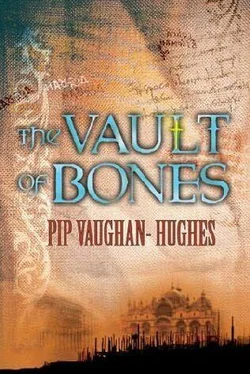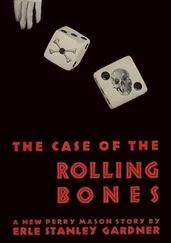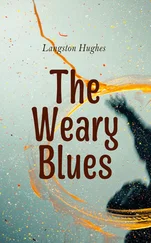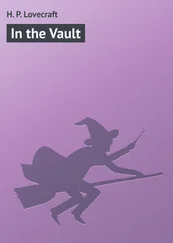Pip Vaughan-Hughes - The Vault of bones
Здесь есть возможность читать онлайн «Pip Vaughan-Hughes - The Vault of bones» весь текст электронной книги совершенно бесплатно (целиком полную версию без сокращений). В некоторых случаях можно слушать аудио, скачать через торрент в формате fb2 и присутствует краткое содержание. Жанр: Исторический детектив, на английском языке. Описание произведения, (предисловие) а так же отзывы посетителей доступны на портале библиотеки ЛибКат.
- Название:The Vault of bones
- Автор:
- Жанр:
- Год:неизвестен
- ISBN:нет данных
- Рейтинг книги:4 / 5. Голосов: 1
-
Избранное:Добавить в избранное
- Отзывы:
-
Ваша оценка:
- 80
- 1
- 2
- 3
- 4
- 5
The Vault of bones: краткое содержание, описание и аннотация
Предлагаем к чтению аннотацию, описание, краткое содержание или предисловие (зависит от того, что написал сам автор книги «The Vault of bones»). Если вы не нашли необходимую информацию о книге — напишите в комментариях, мы постараемся отыскать её.
The Vault of bones — читать онлайн бесплатно полную книгу (весь текст) целиком
Ниже представлен текст книги, разбитый по страницам. Система сохранения места последней прочитанной страницы, позволяет с удобством читать онлайн бесплатно книгу «The Vault of bones», без необходимости каждый раз заново искать на чём Вы остановились. Поставьте закладку, и сможете в любой момент перейти на страницу, на которой закончили чтение.
Интервал:
Закладка:
To my astonishment, he produced a coil of thin rope, thin as string, and gave it to me. It was black and oily.
'Eel skin’ he said. 'It will take your weight, never fear.' As I was pondering this, Michael Scotus handed me a pack, with two straps for the shoulders, roughly stitched from what looked like sailcloth. I hefted it and looked inside: it held a chipping hammer and a chisel. 'Come now: it is getting late’ muttered the doctor.
With the growing sense that I was no more in control of things than a ball launched down a hill, I found myself clambering into the boat. Michael shoved me off as I fumbled the oars into the rowlocks.
'Do not dally, lad’ hissed Michael. And then: 'Be careful, Petroc. Be very, very careful.'
I raised my hand in a half-hearted salute and began to row, clumsily at first, the blades biting too deep or jumping across the surface. But in a minute I found my rhythm, and the little boat began to surge eagerly, happily across the still water. Soon Michael was swallowed up in the tree-shadows, and I was alone. I bent my shoulders into the work of rowing, feeling my hands grow sore with the labour, my spirits rising with each little rush across the water. I was propelling myself, at last, beyond the reach of both persecutors and those who called themselves my friends, but whom I knew it would be madness to trust. A faint breeze was blowing from the west, from Greece and beyond, and catspaws hissed against the side of the boat. There was the crouched, crumbled mound of the Bucoleon Palace, over my right shoulder. No lights showed anywhere to seawards. The home of emperors lay humped upon the shore like a great, dead beast. I set my feet on the bench in front of me and pulled, pulled away, my wake a pathway showing faint and pale. But there was no path ahead of me, by sea or by land. I had no life beyond the next dip of my oars. How tempting to ship them and simply drift, alone in the dark. But that would be death, and now I could see the dim flash of foam where the sea was breaking under the palace. There was no escape: I would wash up sooner or later. Well, I knew how to row, and so I kept to it, the corpse of Constantinople sliding by on the port side.
Chapter Twenty-Three
I moored the boat to a broken marble pole jutting from the slimy rocks. Everything was wreckage here, rubble and seaweed. I could hear the rattle of crab claws on the rocks as I clambered ashore, and the pop of bladderwrack under my feet. The round wall of the chapel was right in front of me, looming overhead, very high and forbidding. It sat upon a crumbling buttress of boulders and rubble which the sea had been chewing so intently that the whole building was nearly undercut. Another decade or so and the Pharos Chapel would be another heap of weed-slick rubble, home to the crabs and eels. I pulled the ladders from the boat and propped them against the buttress, then heaved the boat up on to the rocks, turned it over and draped it with rags of seaweed. Then I scrambled up until I stood on a sort of rough platform or shelf, the width of a couple of feet, under the wall itself. I rested for a little while, for my nose was throbbing horribly and one side of my chest felt as if it were lying upon hot coals. From here the roof seemed much closer, and I could see the moss that hung from the overhang of tiles. Chewing upon my lip to take my mind from the pain of my injuries, I pulled the ladders up next to me and lashed them together with the eelskin cords. Then, after a glance out to sea to make sure I was not observed, I shrugged on my pack and laid a foot upon the bottom rung. The ladder shook and bowed, and I felt like a big grasshopper climbing a little grass stem. With every step the ladders feet danced upon the loose earth, and the top scraped and jounced on the tiles. The higher I got, the more precarious I felt, and I fairly dived on to the tiles when at last I reached the roof. Somewhat shaky with pain and relief I pulled the ladder up after me and set about looking for a place to attach my rope. There was a sort of stone finial at the apex of the roof but when I tugged at it experimentally it grated and shook in its nest of loose mortar. Further behind me the palace rose in its decaying tiers, and in the wall from which the chapel jutted, a little stone window glimmered faintly, white against the surrounding brick. I went over and felt it: the window, really a block of marble with four holes bored through it, was solidly anchored, and so with a little fussing and scraping of knuckle-skin I managed to thread the rope in one hole and out through another. Twice more and a hefty knot, and I had something to which I could trust my weight.
Tying the rope around my waist, I sat on the roof s edge, legs dangling. The hammer and chisel were tucked into my belt, the empty pack limp against my spine. Before me the sea brooded, black upon black. Away in the distance some fishermen's lights winked very faintly, but below me the water was empty, and I could hear nothing save the slap of water against the rocks. I gave the rope one last tug, and swung myself over the edge, twisting as I dropped, and as my grip on the rope brought me up short I fended the wall off with my feet. There were old iron spikes sticking out of the wall here and there, doubtless meant to keep folk like me away, but they were placed wrong and I ignored them as I lowered myself, fist over fist, until my feet were planted on either side of the chapel window. Carefully I dropped another arm's length, then another, until I was looking at the square of slate. It had been mortared in once, but now it was just propped. I pulled it out and dropped it into my pack. A delicate breath of incense came from inside. With one hand I took hold of the rusty iron grille and tugged.
I had been right. Centuries of weather and of salt sea spray had gnawed at the iron where it was set into the lintels, and had rotted the stone and the mortar into nothing more than coarse gravel. Hanging free, I pulled out the hammer and chisel and gave one of the sockets a cautious tap. There was a low echo from within, and some loose gravel tinkled down the inner wall. I tried again, and again, keeping my blows light, for I did not wish to rouse the guards. After a couple of minutes I had exposed one arm of the grille and had set to work on the next. It took me no more than half an hour to work the iron free from its stone surrounding. When I judged that my work was done, I tied the loose end of the rope around it and heaved it out. With a grinding and a shower of rust flakes, it came. Wasting no time, I dragged myself back up to the roof, dumped the grille and the slate, and lowered myself down again. It was still dark: the guards had not heard, and I did not think they could, through thick stone walls and that heavy old door.
From the memories of one look at the inside of the Pharos Chapel when I had not been thinking about it, I had calculated – if my science, made up as it was of equal parts desperation, hope and the ever-tempting notion that if I believed it was so, it would be, could be called calculation of any sort, and not a nonsense akin to the casting of bones – that I would easily fit through the window. And so I could, with room to spare. But I was so wounded and bruised that I found that I could barely make my limbs obey me. Every move was a torment. Straining, feeling my clothing snag on the holes I had made in the sill, I found myself looking down at the ground, some way below, and at the belly of the rope that hung there. Wiggling like a worm in cheese, I was horribly aware of the dark void in which half of me was flailing, a place that had terrified me when I had visited it with candles and company. My ribs, jammed against the stone, were howling in agony.
But with a heave, and remembering just as I began to slip backwards to grab the rope above the window and not below, I dropped into the blackness. Tugging the loop of rope through after me, I gingerly lowered myself, feet swinging, desperate to feel something solid beneath them. And then I realised. I was dangling, like a fly in a spider’s larder, before the great painting of Our Lord in agony, that paean to torture and lingering death that covered the wall behind the altar. I could not see it, but I felt it: the pallid skin suffused with desolate luminescence, the blood-limp hair. With a choking cry I let go of the rope for a split second, but it was enough to send me sliding down, hands burning on the eel skin, until with a hollow thud I landed. Wringing my searing hands I stumbled forward and collided with the altar. The cold stone instantly soothed my palms and I laid my forehead down on the slab, which I could not see but which calmed me enough so that I could untie the rope and struggle out of my pack, into which I dived frantically, fishing for the tinderbox. I found it, and the candle-stub, and after a few clumsy attempts I had struck fire and a pinpoint of light grew into a glow, a halo that lit up the altar, but which seemed too feeble to force its way into the black air beyond. I lit the other candles on the altar, steeled myself, then turned round.
Читать дальшеИнтервал:
Закладка:
Похожие книги на «The Vault of bones»
Представляем Вашему вниманию похожие книги на «The Vault of bones» списком для выбора. Мы отобрали схожую по названию и смыслу литературу в надежде предоставить читателям больше вариантов отыскать новые, интересные, ещё непрочитанные произведения.
Обсуждение, отзывы о книге «The Vault of bones» и просто собственные мнения читателей. Оставьте ваши комментарии, напишите, что Вы думаете о произведении, его смысле или главных героях. Укажите что конкретно понравилось, а что нет, и почему Вы так считаете.









